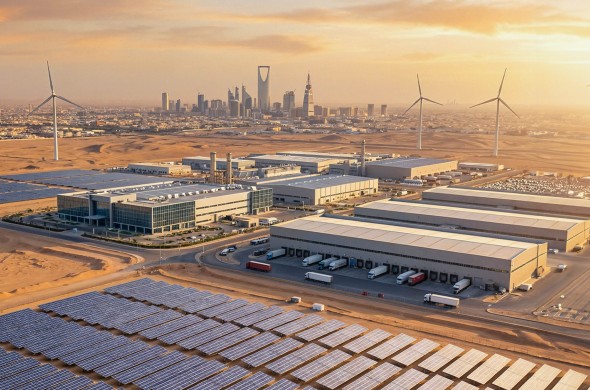The Future is AI-Powered: Top Trends Reshaping the GCC in 2025
A Regional Pivot Toward Intelligent Transformation
Across the Gulf Cooperation Council (GCC), the AI revolution is no longer theoretical; it is firmly underway. As 2025 unfolds, governments and enterprises are accelerating investments in artificial intelligence (AI), particularly in generative AI (GenAI), infrastructure, and data-driven services. This momentum is redefining how key sectors, agribusiness, retail, public services, real estate, hospitality, and consumer goods operate, compete, and serve their stakeholders.
Fueled by strategic national agendas, regional tech investments, and a growing appetite for innovation, AI is becoming a foundational layer in economic diversification and digital transformation. From sovereign AI data centers to predictive analytics in public service, the GCC is positioning itself as a global leader in applied intelligence.
This article explores the most significant AI trends shaping the region in 2025, supported by recent insights from Ollen Group.
GenAI Goes Mainstream: Institutional Adoption Accelerates
GCC organizations are among the world’s fastest adopters of generative AI. In the UAE and Saudi Arabia, over 70% of large institutions have initiated GenAI programs, ranging from early-stage pilots to scaled deployments across business units.
In the public sector, ministries and municipalities are leveraging GenAI to simulate policy outcomes, reduce administrative workloads, and optimize citizen services. Predictive modeling and automated decision-support tools are enabling governments to act faster and more precisely, especially in areas such as public health, urban planning, and regulatory compliance.
In the private sector, GenAI is transforming operations, from automating marketing content and customer service to enhancing product development and internal knowledge management. Companies are increasingly embedding AI into core workflows, signaling a shift from experimentation to operational integration.
Building the Foundations: AI Infrastructure and Sovereign Data Strategy
AI development is only as strong as the infrastructure behind it. The recent unveiling of “Stargate”, a hyperscale AI supercomputer in Abu Dhabi, highlights the region’s commitment to digital sovereignty. As reported, this facility is designed to host, train, and deploy large-scale AI models on regional data, ensuring secure, localized innovation.
Across the GCC, similar initiatives are taking shape. Governments are advancing sovereign cloud strategies, investing in regional data centers, and formulating AI governance policies that emphasize both national competitiveness and data privacy.
These moves are particularly significant for sectors with strict regulatory environments, such as finance, healthcare, and public administration, where control over data pipelines and model behavior is mission-critical.
Responsible AI: Governance Rises on the Agenda
As AI adoption intensifies, so does the demand for responsible use. A recent forum on AI governance cautioned against unchecked deployment, noting that rapid innovation must be accompanied by ethical safeguards, risk mitigation, and public accountability.
In response, GCC countries are proactively shaping regulatory frameworks. The UAE has established AI ethics boards and model audit standards, while Saudi Arabia is exploring mechanisms for algorithmic transparency in high-impact areas such as surveillance and law enforcement.
The shift is clear: from “tech-first” to “trust-first.” Responsible AI is becoming a non-negotiable priority, not just for governments but also for businesses navigating reputational, legal, and operational risks.
Four AI-Powered Trends Reshaping Digital Transformation in the GCC
AI is not merely an enabler; it is a central force driving digital transformation across industries. The following trends exemplify how AI is reshaping the region’s operating models and customer experiences:
1. Hyper-Personalization in Consumer Engagement
Retailers, hospitality brands, and consumer goods companies are deploying AI to deliver individualized experiences in real time. Using behavioral data, geolocation, and predictive analytics, organizations now curate products, offers, and services tailored to each user, boosting retention and conversion rates.
2. Predictive Supply Chains and Autonomous Operations
Supply chain management is undergoing a transformation powered by AI-driven forecasting, demand sensing, and route optimization. In a region that relies heavily on imports and logistics networks, predictive capabilities are proving critical to managing volatility and ensuring continuity.
3. Smart Cities and Urban Intelligence
From traffic optimization to environmental monitoring, cities across the GCC are embedding AI into their infrastructure. Smart city initiatives in Riyadh, Dubai, and NEOM exemplify how machine learning and IoT are being combined to create adaptive, resilient urban environments.
4. Experience Design in Leisure and Tourism
AI is reshaping how visitors interact with destinations. From AI-powered travel apps to intelligent concierge services, tourism operators are using real-time data to offer curated journeys, dynamic pricing, and personalized experiences, enhancing satisfaction and operational efficiency.
Sector Highlights: Where AI Is Making an Impact
Agribusiness
Precision agriculture is emerging as a key application of AI. Smart sensors, satellite imaging, and machine learning models are being used to analyze soil conditions, monitor crop health, and automate irrigation. This enables higher yields with lower resource consumption, vital for food security in arid climates.
Retail
Autonomous stores, AI-powered merchandising, and dynamic inventory systems are redefining the retail experience. By analyzing customer behavior and sales patterns, retailers often optimize product placement, staffing, and pricing strategies in real time.
Public Sector
Predictive analytics is enabling governments to anticipate citizen needs, automate service workflows, and manage resources proactively. AI is also being used to model economic scenarios, evaluate policy impacts, and detect fraud in real-time transactions.
Real Estate
AI is transforming how properties are designed, developed, and managed. Generative design tools are accelerating architectural planning, while predictive maintenance systems are reducing downtime in commercial and residential buildings. In real estate investment, AI models are helping forecast asset performance and market trends.
Hospitality and Leisure
Hotels and resorts are embracing AI to anticipate guest preferences, automate check-ins, and customize offerings. From dynamic pricing to sentiment analysis, machine learning is helping brands exceed expectations and maximize occupancy rates.
Consumer Goods
Manufacturers are leveraging AI to optimize product design, predict demand, and enhance supply chain agility. AI also supports sustainable practices, such as minimizing waste through precise production planning and monitoring environmental impacts across the value chain.
Looking Ahead: Strategic Considerations for AI Leadership
The trajectory is clear: AI will be a decisive factor in determining which organizations thrive and which fall behind. In the GCC, where digital transformation is closely tied to national development agendas, the pressure to act is intensifying.
For public and private leaders, the path forward involves more than deploying AI tools; it requires:
- Defining clear use cases aligned with business priorities
- Building AI-ready infrastructure and data strategies
- Ensuring ethical, compliant adoption
- Developing internal capabilities and partnerships
The winners will be those who combine visionary thinking with disciplined execution, transforming AI from a buzzword into a core strategic capability.
Final Thoughts
2025 marks an inflection point for the GCC’s AI journey. As GenAI becomes a staple of operations, and sovereign infrastructure lays the groundwork for autonomy and scale, the region is setting a precedent for the world. But the opportunities ahead also come with responsibility, complexity, and urgency.
Decision-makers across sectors must act decisively, designing AI strategies that are robust, responsible, and regionally relevant. The future of competitive advantage in the Gulf will not be built on scale alone, but on intelligence: how it is embedded, governed, and leveraged to drive enduring impact.
Read our latest insights, ideas, and perspectives that explore the trends shaping the future of business and society. Our consultancy services go hand-in-hand with these insights, confirming our position as industry leaders. Get in touch to find out more about our consulting services and industry expertise at a retail store development and experience design and development firm.



